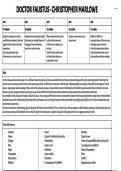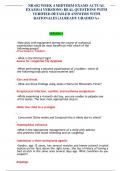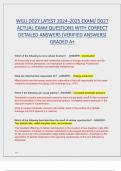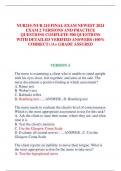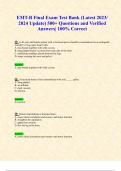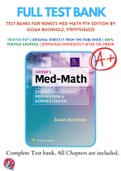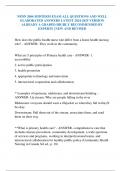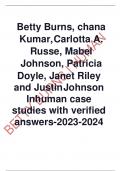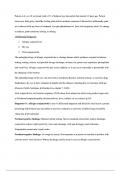Class notes
Eduqas A Level English Literature Component 2: Drama| 'Enron' by Lucy Prebble and 'Dr Faustus' by Christopher Marlowe| Revision Bundle, Everything You Need To Know
- Course
- Institution
This document consists of all the knowledge needed for in Paper 2 Eduqas English Literature A Level for Lucy Prebble's 'Enron' and Christopher Marlow's 'Dr Faustus'. It covers all of the AOs required for this essay, including summaries, context, critics, quotes, analysis of quotes, topic sentences,...
[Show more]
